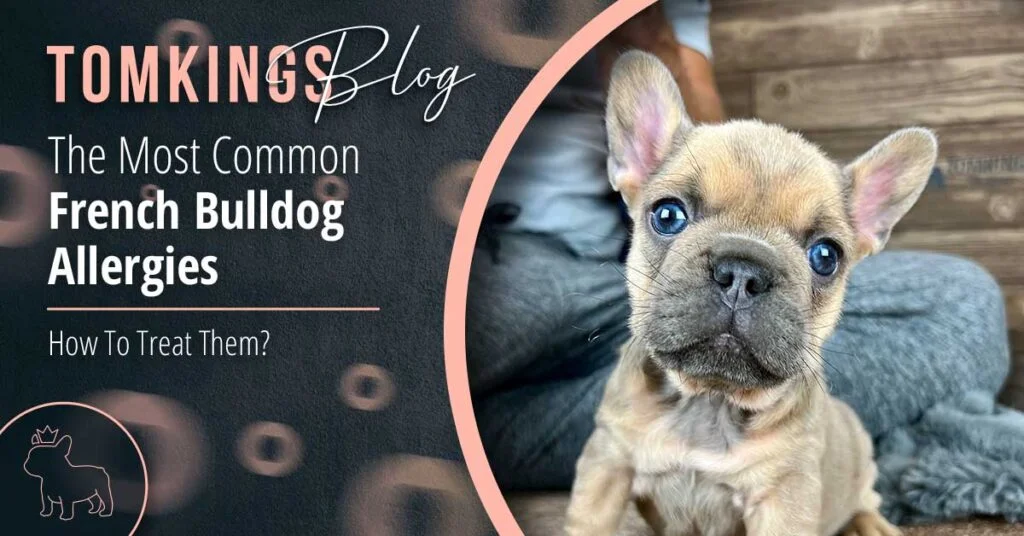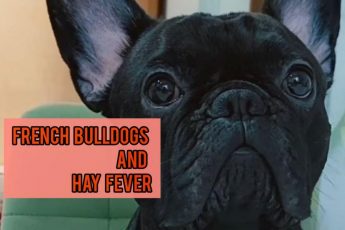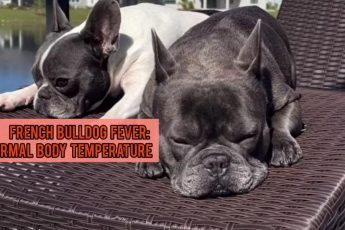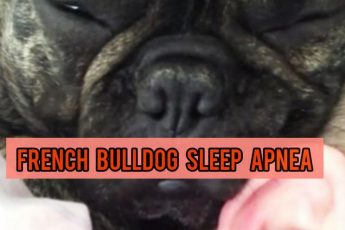
French Bulldogs are cherished companions known for their playful personalities and distinctive physical features. However, like all dogs, they can develop food allergies that may cause discomfort and health issues. It is essential for owners to understand the common triggers of food allergies in French Bulldogs in order to provide them with the proper diet and prevent potential complications.
Food allergies in French Bulldogs can manifest as various symptoms such as itching, digestive problems, and skin irritations. When an allergy occurs, the immune system mistakenly identifies certain ingredients in the food as harmful and launches an immune response. Some of the most common food allergens for French Bulldogs include grains, dairy products, chicken, beef, and fish.
Grains such as wheat, corn, and soy are often used in commercial dog foods as fillers. However, they can be difficult for French Bulldogs to digest, leading to allergic reactions. Dairy products, such as milk and cheese, contain lactose, which some French Bulldogs may be intolerant to. Chicken, beef, and fish are common sources of protein in dog foods, but they can be allergenic for some French Bulldogs.
It is important for owners to carefully monitor their French Bulldog’s diet and identify any potential trigger foods. This can be done through an elimination diet, where certain ingredients are gradually removed from the dog’s food until the allergen is identified. Alternatively, specialized hypoallergenic dog foods can be used, which are formulated to minimize the risk of triggering an allergic reaction.
- Understanding French Bulldog Food Allergies
- Common Triggers for French Bulldog Food Allergies
- Symptoms of French Bulldog Food Allergies
- Symptoms of Food Allergies in French Bulldogs
- Gastrointestinal Symptoms
- Skin and Coat Symptoms
- Common Triggers of Food Allergies in French Bulldogs
- Identifying Food Allergies in French Bulldogs
- Managing Food Allergies in French Bulldogs
- Preventing Food Allergies in French Bulldogs
- Q&A
- What are some common triggers of food allergies in French Bulldogs?
- How can I tell if my French Bulldog has a food allergy?
- Can food allergies in French Bulldogs be treated?
- Are there any hypoallergenic dog food options available for French Bulldogs?
- Are food allergies common in French Bulldogs?
- What are some common food allergies in French Bulldogs?
- How do I know if my French Bulldog has a food allergy?
Understanding French Bulldog Food Allergies
French Bulldogs are known to be sensitive to certain foods, which can lead to food allergies. If your furry friend is experiencing symptoms like vomiting, diarrhea, itching, or chronic ear infections, it’s essential to understand the triggers behind these allergies and provide suitable nutrition to alleviate their discomfort.
Common Triggers for French Bulldog Food Allergies
1. Protein Sources:
Proteins are a common cause of food allergies in French Bulldogs. Chicken, beef, lamb, and fish are frequently used in dog food, but some French Bulldogs may develop allergies to these protein sources. It is important to identify the specific protein source causing the allergy and avoid it in their diet.
2. Grains:
Grains like wheat, corn, and soy can also trigger allergic reactions in French Bulldogs. These ingredients are commonly used as fillers in dog foods but can cause digestive issues and skin irritations in sensitive dogs. Consider opting for a grain-free dog food or one with alternative grains like rice or oats.
Symptoms of French Bulldog Food Allergies

It’s crucial to be aware of the symptoms that indicate your French Bulldog might have a food allergy:
1. Vomiting and Diarrhea: If your French Bulldog frequently experiences vomiting or has loose stools, it could be a sign of a food allergy.
2. Itchy Skin: Food allergies can manifest as itchy skin, leading to excessive scratching, chewing, or biting. This can result in redness, rashes, and hair loss.
3. Chronic Ear Infections: Food allergies can contribute to recurring ear infections in French Bulldogs. Signs include redness, swelling, excessive ear scratching, and ear discharge with an unpleasant smell.
4. GI Upset: Digestive issues like gas, bloating, and constipation are common symptoms of food allergies in French Bulldogs.
If you notice any of these symptoms in your French Bulldog, it’s crucial to consult your veterinarian for a proper diagnosis and to discuss suitable dietary changes that can help alleviate their allergies and improve their overall well-being.
Symptoms of Food Allergies in French Bulldogs
French Bulldogs are known to be susceptible to food allergies, which can cause a range of uncomfortable symptoms. It’s important for dog owners to be aware of these symptoms so they can identify and address any potential food allergies their French Bulldog may have.
Gastrointestinal Symptoms
One common set of symptoms associated with food allergies in French Bulldogs are gastrointestinal in nature. These symptoms may include:
- Chronic diarrhea
- Vomiting
- Flatulence
- Unexplained weight loss
If your French Bulldog is experiencing any of these symptoms on a regular basis, it may be indicative of a food allergy and you should consult with your veterinarian for further evaluation.
Skin and Coat Symptoms
Another set of symptoms that can indicate a food allergy in French Bulldogs are related to the skin and coat. These symptoms may include:
- Itching
- Redness or inflammation of the skin
- Hives or rashes
- Excessive shedding
If you notice any of these symptoms in your French Bulldog, it’s important to investigate the possibility of a food allergy as the culprit. Working with your veterinarian to identify and eliminate the specific trigger from your dog’s diet can help alleviate these symptoms and improve their overall well-being.
It’s important to note that food allergies can develop over time, even if your French Bulldog has been eating the same diet for years without issue. Therefore, it’s essential to stay vigilant and aware of any changes in your dog’s health or behavior that may suggest a food allergy. By being proactive and addressing any potential food allergies, you can help ensure your French Bulldog lives a healthy and happy life.
Common Triggers of Food Allergies in French Bulldogs
French Bulldogs can be prone to food allergies, which can cause discomfort and health issues. Identifying the common triggers of these allergies can help you provide a better diet for your furry friend.
One of the most common triggers of food allergies in French Bulldogs is proteins, such as beef, chicken, and lamb. These proteins can cause an allergic reaction in sensitive dogs, leading to symptoms like itching, gastrointestinal upset, and ear infections. It’s important to carefully read the ingredient labels of your dog’s food and avoid these protein sources if your Frenchie has a known food allergy.
Grains, including wheat, corn, and soy, are another common trigger of food allergies in French Bulldogs. Many commercial dog foods contain these grains as fillers, but they can cause allergic reactions in sensitive dogs. Look for grain-free dog foods that use alternative carbohydrate sources like sweet potatoes or peas to provide the necessary energy for your Frenchie.
Food additives and preservatives can also trigger allergies in French Bulldogs. These include artificial colors, flavors, and chemicals like BHA and BHT. Opt for dog foods that use natural preservatives like Vitamin E or rosemary extract, and avoid those with artificial additives to minimize the risk of allergies.
It’s important to note that food allergies can develop over time, even if your French Bulldog has been consuming a certain ingredient without any issues in the past. If you notice any signs of food allergies in your Frenchie, consult with your veterinarian for a proper diagnosis and to determine an appropriate diet plan.
In conclusion, proteins, grains, and food additives can be common triggers of food allergies in French Bulldogs. By being aware of these triggers and carefully selecting your dog’s diet, you can help minimize the risk of allergies and ensure a healthy and comfortable life for your furry friend.
Identifying Food Allergies in French Bulldogs
Food allergies can be a common issue in French Bulldogs, causing discomfort and health problems. It’s important for pet owners to be able to identify these allergies in order to provide the best possible care for their furry friends.
One common sign of a food allergy in French Bulldogs is itchy skin. If you notice that your French Bulldog is constantly scratching, biting, or licking their paws, this may be a sign of an allergic reaction to their food.
Another symptom to look out for is gastrointestinal issues. If your French Bulldog experiences frequent vomiting, diarrhea, or constipation, it may be a result of a food allergy. Keep an eye out for any sudden changes in your dog’s bathroom habits.
Some French Bulldogs may also develop respiratory problems as a result of food allergies. If you notice your dog wheezing, coughing, or experiencing difficulty breathing after eating a certain type of food, it’s possible that they have an allergy to it.
It’s important to remember that food allergies can sometimes be confused with other health issues, so it’s crucial to consult with a veterinarian for an accurate diagnosis. Your vet may recommend an elimination diet to help identify the specific food trigger for your French Bulldog’s allergies.
Once you’ve identified the allergen, it’s essential to eliminate it from your dog’s diet completely. Your vet can help guide you in finding a suitable alternative food that meets your French Bulldog’s nutritional needs.
By carefully monitoring your French Bulldog’s diet and watching for any signs of food allergies, you can help keep your furry friend healthy, happy, and allergy-free.
Managing Food Allergies in French Bulldogs
Food allergies can be a common issue for French Bulldogs, often causing discomfort and health problems. Fortunately, with proper management, you can ensure the well-being of your furry friend. Here are some important steps to follow:
| Step | Description |
|---|---|
| 1 | Identify the Allergen |
| 2 | Eliminate the Allergen from the Diet |
| 3 | Consult with a Veterinarian |
| 4 | Introduce an Elimination Diet |
| 5 | Monitor for Improvement |
| 6 | Make Necessary Dietary Changes |
Identifying the allergen is crucial in managing food allergies in French Bulldogs. Common allergens include beef, chicken, dairy products, wheat, and soy. Once the allergen is identified, it is essential to eliminate it completely from your dog’s diet.
Consulting with a veterinarian is highly recommended as they can provide professional guidance and advice specific to your French Bulldog’s condition. They may suggest an elimination diet, which involves feeding your dog a novel and hypoallergenic food source for a certain period of time.
During the elimination diet, carefully monitor your dog for any signs of improvement. If the symptoms disappear or significantly reduce, it indicates that the previous diet was causing the allergies. You can then make necessary dietary changes based on your veterinarian’s advice.
It’s important to remember that managing food allergies in French Bulldogs requires patience and consistency. Stick to the recommended diet and avoid giving your dog any treats or foods that contain the identified allergen. With proper management, you can help your furry friend lead a happy and allergy-free life.
Preventing Food Allergies in French Bulldogs
Food allergies can be a frustrating and uncomfortable condition for French Bulldogs. To help prevent food allergies in your furry friend, it is important to take certain measures:
1. Choose High-Quality, Limited Ingredient Food: Opt for high-quality dog food that contains limited ingredients. This can help reduce the chances of exposing your French Bulldog to potential allergens.
2. Avoid Common Allergens: Some common allergens for French Bulldogs include beef, chicken, wheat, soy, and dairy products. It is best to avoid these ingredients in your dog’s food to lower the risk of developing food allergies.
3. Gradually Introduce New Foods: When introducing new foods to your French Bulldog’s diet, do it slowly and gradually. This allows you to monitor any possible allergic reactions and determine if any specific ingredient triggers an allergy.
4. Consult with a Veterinarian: If you suspect that your French Bulldog may have food allergies or if you need guidance in choosing the right food for your dog, consult with a veterinarian. They can provide advice tailored to your dog’s specific needs and help you identify potential problem ingredients.
5. Keep a Food Diary: Maintaining a food diary can be helpful in identifying any patterns or triggers for your French Bulldog’s allergies. Note the ingredients in your dog’s food and any symptoms or reactions they experience, which can help you identify potential allergens.
6. Regularly Clean Food and Water Bowls: Dried food particles can attract bacteria and other potential allergens. Regularly clean your French Bulldog’s food and water bowls to reduce the risk of contamination and potential allergic reactions.
7. Be Mindful of Treats and Supplements: Treats and supplements can also contain ingredients that may trigger food allergies in French Bulldogs. Always read the labels carefully and choose hypoallergenic options or consult with your veterinarian for safe alternatives.
By taking these preventive measures, you can help minimize the risk of your French Bulldog developing food allergies and ensure their overall health and well-being.
Q&A
What are some common triggers of food allergies in French Bulldogs?
Common triggers of food allergies in French Bulldogs include proteins such as beef, chicken, and dairy, as well as grains like wheat and corn.
How can I tell if my French Bulldog has a food allergy?
Signs that your French Bulldog may have a food allergy include itching, excessive scratching, rashes, gastrointestinal upset, and chronic ear infections. It is important to consult with a veterinarian to properly diagnose and treat the allergy.
Can food allergies in French Bulldogs be treated?
While there is no cure for food allergies, they can be managed through a process of elimination, where potential allergens are removed from the dog’s diet. A veterinarian can help create a suitable allergy-friendly diet for the French Bulldog.
Are there any hypoallergenic dog food options available for French Bulldogs?
Yes, there are hypoallergenic dog food options available for French Bulldogs. These special diets are formulated with limited ingredients to reduce the risk of triggering food allergies. A veterinarian can recommend a suitable hypoallergenic dog food brand.
Are food allergies common in French Bulldogs?
Food allergies are relatively common in French Bulldogs. They can develop allergies at any age, but they are most commonly diagnosed between the ages of 6 months and 2 years.
What are some common food allergies in French Bulldogs?
Common food allergies in French Bulldogs include beef, chicken, dairy, wheat, soy, and eggs.
How do I know if my French Bulldog has a food allergy?
If your French Bulldog is experiencing symptoms such as itching, redness, rashes, hair loss, vomiting, diarrhea, or excessive gas, it may be a sign of a food allergy. Consult with your veterinarian for a proper diagnosis.







